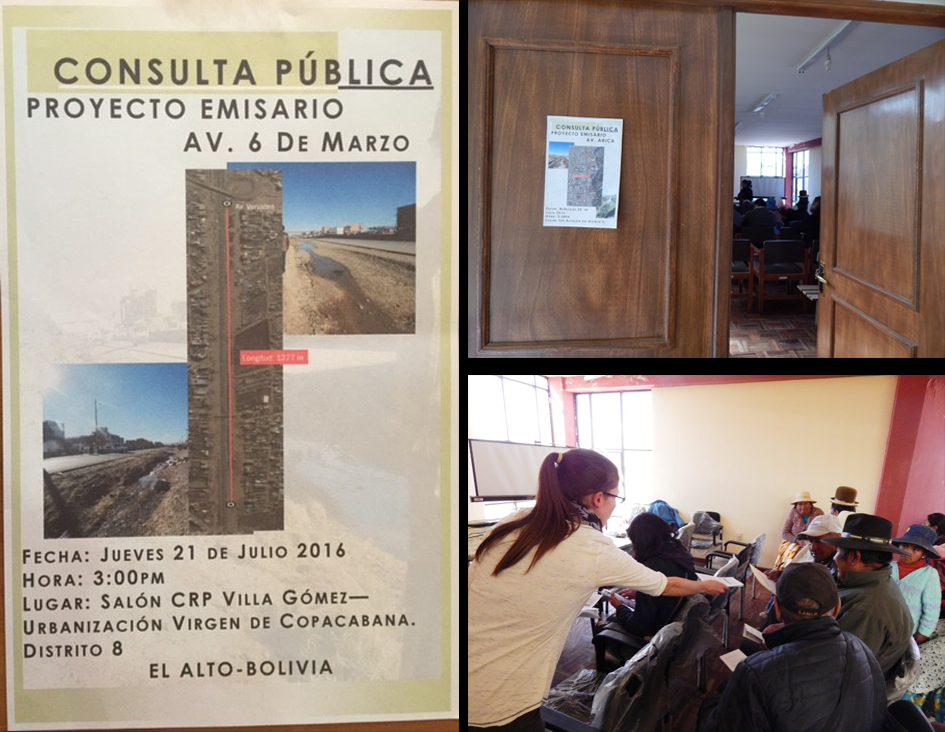Consultations are institutional mechanisms embedded in many Inter-American Development Bank’s (IDB) safeguards which consider the views of the stakeholders involved in its operations. They also represent an opportunity to build consensus on goals, and promote the engagement of beneficiaries to help them achieve environmental and social sustainability.
The advantages of carrying out public consultations are usually clear. Nevertheless, their implementation in complex socioeconomic and cultural contexts can pose major challenges. Increasingly short project cycles create additional difficulties, and require a strategic approach for the consultation to be meaningful in terms of key stakeholders, scope, and resolution processes to obtain informed answers within the project’s life cycle. These difficulties generally lead to complaints about the execution due to a lack of formal protocols establishing what, how, and when to consult key stakeholders in an efficient and timely fashion.
To tackle these challenges, it’s necessary to conduct each consultation as part of an integral process that includes:
- Identifying and defining stakeholders;
- Agreeing on an implementation protocol – including the appropriate topics and methods;
- Adequate grievance resolution mechanisms; and
- Stakeholders’ participation in the pursuit of the project’s goals.
These are the principles behind the Social Consensus Plan provided for the Storm Drainage Program for the Cities of La Paz and El Alto III in Bolivia (PDP).
Social Consensus Plan

The Social Consensus Plan encompasses the consultation process as well as communication mechanisms and actions that promote the involvement of the beneficiaries. Its main goal is to achieve the project’s social sustainability, fostering civil society engagement during the preparation, construction, and operation stages to carry out actions that optimize results, mitigate impacts, and avoid possible social conflicts or allow their constructive resolution.
The Plan includes five lines of action based on the results of successful consultations already under way in the municipalities of La Paz and El Alto. These mutually complementary lines of action are undertaken integrally and systematically during PDP execution, adopting specific modalities required for each of the projects mainstreamed in the program.
- Communication and Consultation. Maintain a constant reporting and consultation process, providing timely information during the building phase per construction schedules. This action line comprises specific consultations with affected stakeholders to ensure adequate implementation of mitigation measures and to avoid conflicts during construction and operation stages.
- Participation. This action line includes specific measures that contribute to the proper use and protection of infrastructure during operations such as cleaning, solid waste handling, replanting, etc. These points build on successful experiences, adding a gender approach to promote female participation as well as incorporating youth and other groups that may make positive contributions (neighborhood associations, unions, trade associations, etc.).
- Organization Strengthening. Grass-roots organization strengthening aims at boosting their ability to promote leadership through:
- Training;
- Resource allocation (personnel, equipment, etc.);
- Incentives that contribute to the project’s goals.
- Grievance handling. The mechanism to handle complaints focuses on addressing claims from affected citizens and project beneficiaries in a timely manner to prevent conflicts and promote their friendly and satisfactory settlement. This mechanism includes:
- Effective grievance reception, handling, and closure flows;
- Classification and recording by level of urgency or need;
- Quality standards regarding service and resolution times;
- Defining and establishing a legitimately recognized neutral body to mediate in case of failure to reach an agreement.
- Environmental education program. Environmental education as envisioned by Bolivian legislation on water projects aims at underlining the importance and benefits of PDP projects, raising awareness on its environmental benefits, and promoting disaster detection and prevention.
Participant districts have taken responsibility for presenting their progress reports in each of these lines three times a year, indicating: compliance level, actions that must be addressed, and suggestions for improvement.
Incorporating stakeholders’ perspectives helps outline development programs’ benefits and scope, finds options to mitigate possible impacts, avoids disinformation to prevent conflicts, and ultimately, improves quality of life
OP-703 Environment and Safeguards Compliance Policy establishes consultations terms of reference in point B.06. OP-102 Access to Information Policy offers guidance on public access to key project documentation. OP-765 Operational Policy on Indigenous Peoples lays out culturally appropriate standards for consultations with Indigenous Peoples. OP-710 Involuntary Resettlement suggests mechanisms for the affected population to partake in mitigation and resettlement alternatives. Lastly, OP-761 Operational Policy on Gender Equality in Development includes guidelines for women’s participation in activities regarding information, consultation, and training.


Leave a Reply